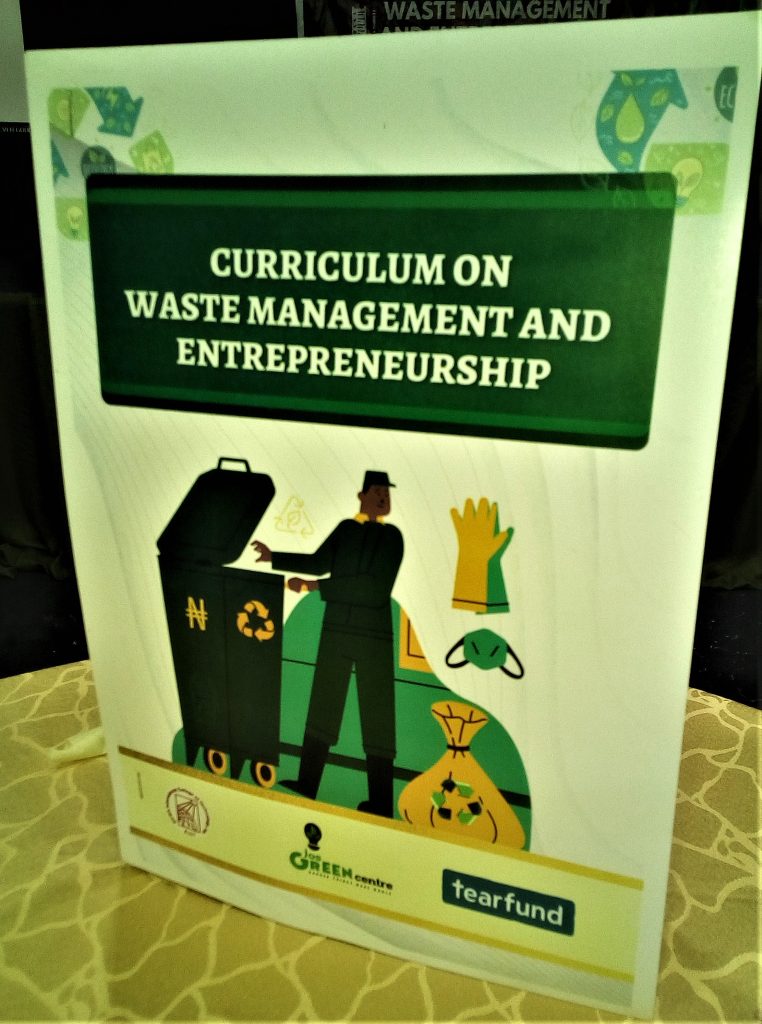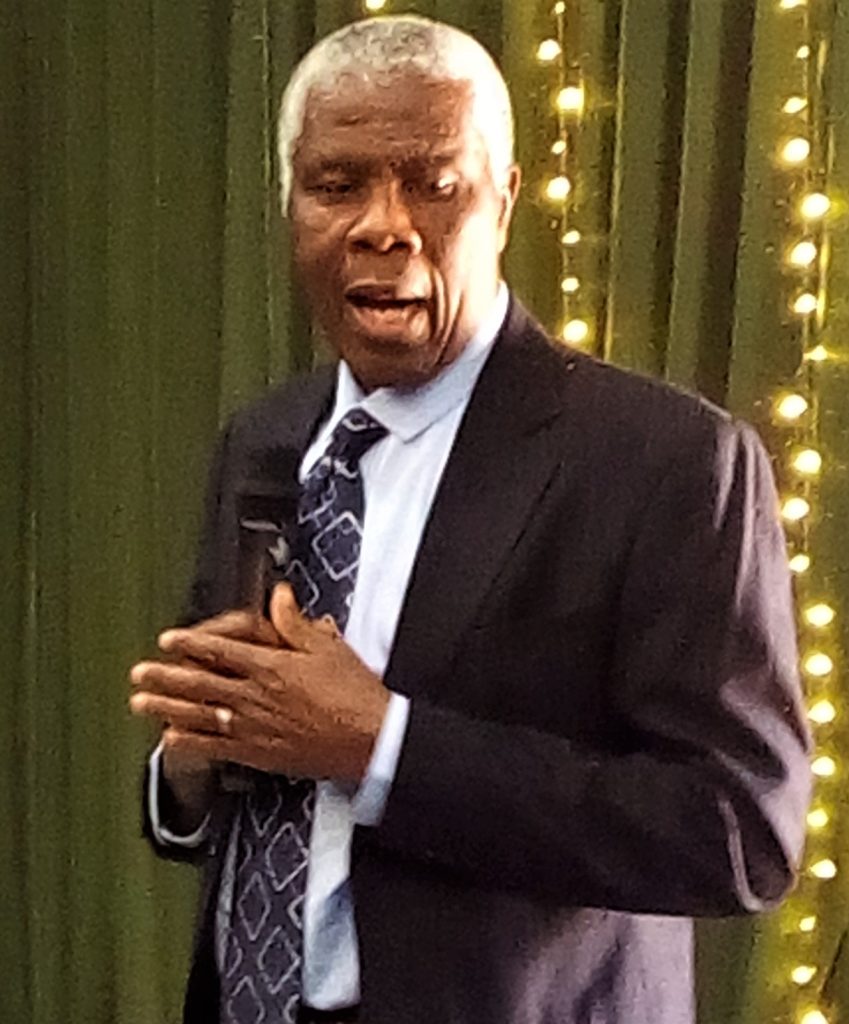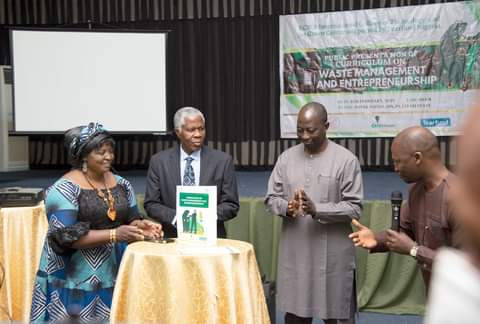By Ralph Madugu
ECWA International College of Technology is set to introduce a new programme in waste management and entrepreneurship. This followed the public presentation of a newly developed educational curriculum aimed at enabling polytechnics and colleges of technology provide instruction and technical and value based competencies towards the award of certificates and national diplomas in Waste Management and Entrepreneurship.
The new curriculum, an initiative of the Jos Green Centre and ECWA International College of Technology supported by Tearfund Nigeria, would enable students, on completion of the course to be offered by EICT, to create jobs and disrupt the existing linear processes of production and consumption in Nigeria resulting in a nation that works with citizens living healthier lives and fulfilling their God-given potentials.

At the public presentation of the new curriculum, Rector of ECWA International College of Technology, Mrs. Christie Dasaro, said the event was meant to draw public attention to Nigeria’s very poor waste management system as symbolized by the indiscriminate dumping of waste in streets, gutters and bushes in urban cities.
Said she: “There is also the common practice of burning waste. These practices nurture environmental pollution and health problems, flooding, and groundwater contamination. This program is designed to help young Nigerians to develop an entrepreneurial mindset, to embrace the possibility and promise of creating wealth from waste, transiting from payroll to profit, from idleness to self-employment, and to aim for a clean and sustainable environment.”
While calling on the public to join hands with EICT to make the implementation of the curriculum a reality so as “to bring sanity to our environment and create jobs for our young people” whom she said were “languishing in unemployment and poverty,” Mrs. Dasaro stated that the program can only be successful with the support of the public.
Mrs. Dasaro who likened the new curriculum to the Biblical Parable of the Mustard Seed, expressed optimism that, though it is starting small, it would expand and transform Nigeria and even beyond.
In a keynote address, Technical Advisor, Programme Management and Results Delivery Office, Engr. Jaafaru Wuyep, described the curriculum as an addition to the achievements by Tearfund, Jos Green Centre and other partners in their mission of improving livelihoods.

Represented by Dr. Geraldine Rimven, Wuyep explained that the link between waste management and enterprenuership is a circular economy which is a “a production and consumption system that relies on the recycling, re-use, repair, remanufacturing, sharing of products, as well as changing the consumption patterns and adopting new business models and systems.”
He added that jobs associated with cleanup and reuse may appropriately be considered for creating significant economic impact.
In addition, Wuyep maintained that revenues generated from waste are from recyclables or by-products from recycling, sale from biogas produced from energy recovery at landfill or incinerators, waste taxes and tipping fees, as well as climate funds secured for the waste sector.
Said he, “With the rapid growth in the world’s population and the ever increasing rate of urbanization, the amount of waste generated is projected to increase by 70% over the next 30 years. This means that as much as 3.4 billion metric tonnes of waste will be created annually by 2050.
“This illustrates the huge market that can be created for waste management in the coming years. It is greatly commendable then, that Tearfund has taken a great stride, to accord to Waste Management and Entrepreneurship the required attention by putting in place a mechanism for structured knowledge-sharing, and by so doing, making the state ready to participate in the next revenue-spinner for the government and its people, as aptly expressed by Benjamin Franklin who said, ‘an investment in knowledge always pays the best interest’.”

In a presentation tagged, “Building from Ground Zero”, Tearfund Advocacy Officer, Ben Osawe, posited that Nigeria’s educational system does not create space for innovation, adding that the connection between education, knowledge and innovation is weakened by “the rote approach to learning hampering critical reflections and imagination which inspires innovation.”
Given the historical emphasis on white collar jobs, Osawe asserted that there was no deliberateness in developing a culture of entrepreneurship in Nigeria with the result that graduates of various institutions lack the requisite skills to create sustainable enterprises and jobs resulting in mass unemployed in the nation.
On what he termed “cracking the nut of high youth unemployment in Nigeria: Introducing the curriculum for waste management and entrepreneurship,” he said “the current mood in the nation is that of a national consensus on the urgency to address the crisis of youth unemployment in Nigeria, this sens of urgency is driven by the understanding that it is essential that young people do not feel disenfranchised and threaten the social structure and safety of the nation.
“Related to this, is the argument that young people, when gainfully employed, represent a tremendous resource for developing and industrializing nations; they bring energy, creativity and imagination to many nation-building tasks, from building infrastructure to preserving the environment.”

On the philosophy of the curriculum. Osawe said it is hinged on the principle of circular economy which according to him, is the opposite of linear economy which is associated with waste and has ecological and economic implications.
“The linear approach is characterized by reuse and recycle and has prevention, or zero waste, as its ultimate goal.”
On the structure of the curriculum, he said the programme, which is in line with the regulations of the National Board for Technical Education (NBTE), will be completed in two years for full time and three years for part time students.
In his remarks, Prof. Timothy Oyetunde who served as consultant for the development of the new curriculum said the instructional philosophy that would guide the implementation of the programme is active learning which he said is learner-centred approach that encourages students to mentally and behaviorally engage in the learning process as opposed to passively receiving information from their teachers in the form of a lecture.
Unveiling the curriculum, Tearfund Country Director, Paul Mershak represented by Tearfund Project Manager, Godwin Nimyel, commended EICT for the laudable effort aimed at bringing change to society.
The Tearfund Country Director called for a monitoring system for the implementation of the curriculum urging that it should not end at having a curriculum but also traced it to the students after they have acquired the knowledge and use same knowledge to engender transformation and subsequently see how to scale it up to other tertiary institutions as according to him, it is “a very good strategy” in addressing the problems highlighted.
Dedicating the curriculum, representative of ECWA Executive and Director of Radio ELWA, Rev. Chris Dariya, appreciated the partnership between EICT, Tearfund and Jos Green Centre.
He maintained that the curriculum is not just about Nigeria but for humanity as a whole aimed at turning situations around for the sake of God’s glory.
“Even though our beginning is looking small, the end definitely will be very great.”
There were goodwill messages from ECWA Education Department and the German Agency for International Cooperation (GIZ).
